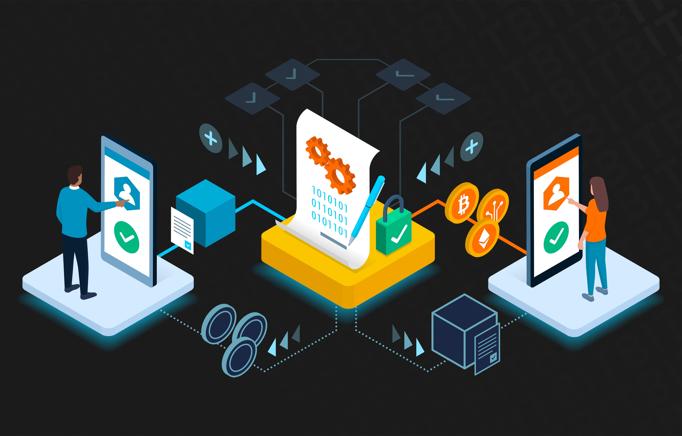What is a smart contract?
العملات المشفرة للمتقدمين
مقالات أخرى
Simply said, a "smart contract" is a software that runs on Ethereum's blockchain. It's a collection of code (its functions) and data (its state) that lives on the Ethereum blockchain at a single address.
Ethereum accounts come in the form of smart contracts. This indicates that they have a balance and can send transactions across the network. They are not, however, controlled by a user; instead, they are deployed to the network and run according to a set of instructions. User accounts can then engage with a smart contract by sending transactions that cause the smart contract to perform a function. Smart contracts, like conventional contracts, can set rules and have them enforced automatically through programming. Smart contracts can't be deleted by default, and their interactions are permanent.
A smart contract is a self-executing contract in which the conditions of the buyer-seller agreement are encoded directly into code lines. A distributed, decentralized blockchain network hosts the code and the agreements it contains. Transactions are trackable and irreversible, and the code controls the execution. Without the requirement for a central authority, legal system, or external enforcement mechanism, smart contracts enable trustworthy transactions and agreements to be carried out among disparate, anonymous parties. While blockchain technology is most commonly associated with bitcoin, it has grown to encompass much more.
Nick Szabo, an American computer scientist who established a virtual currency dubbed "Bit Gold" in 1998, 10 years before the development of bitcoin, introduced smart contracts in 1994. Szabo is frequently mistaken for Satoshi Nakamoto, the anonymous creator of bitcoin, a claim he has denied. Smart contracts, according to Szabo, are automated transaction protocols that carry out the provisions of a contract. He sought to take electronic transaction methods like POS (point of sale) and bring them into the digital arena.
Szabo also recommended the execution of a contract for synthetic assets like derivatives and bonds in his paper. Szabo stated: "These new securities are created in a variety of ways by mixing securities (such as bonds) and derivatives (such as options and futures). Due to computerized analysis of these complicated term structures, very complex payment term structures may now be constructed into standardized contracts and exchanged with low transaction costs." If we put it in a simple way, he was referring to the sale and purchase of derivatives with complex terms.


